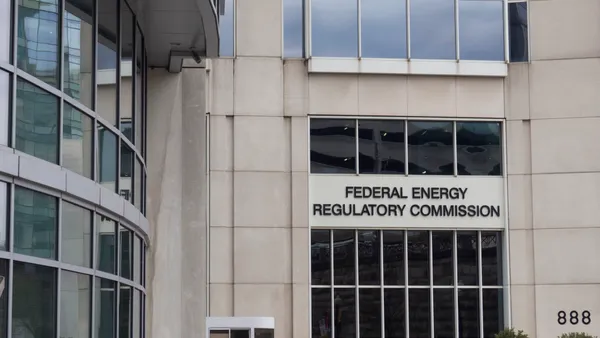Dive Brief:
- Texas regulators on Thursday rejected NextEra Energy's $18 billion bid to acquire Oncor Electric, citing concerns about the independence of the utility's board and the possibility of increased risk for ratepayers.
- At a meeting of the Public Utilities Commission of Texas, regulators adopted a draft order rejecting the deal, making only minor changes.
- NextEra's bid for Oncor is the second failed attempt to purchase the utility out of the bankruptcy proceeding of its parent, Energy Future Holdings (EFH). Regulators rejected an acquisition proposal from real estate firm Hunt Consolidated last year, opening the door for NextEra.
Dive Insight:
Texas regulators say they have learned from the past, refusing to allow the Oncor deal to go through without additional ratepayer protections — "ring fencing" provisions that would separate the utility's finances from those of its parent company.
The commission said those provisions were one of two sticking points NextEra leaders could not move past, the other being a call for an independent board of directors and limits on dividend distributions.
Since the 2007 leveraged buyout of TXU Corp. by Energy Future Holdings, regulators said a "robust ring fence" has protected Oncor ratepayers from "financial calamity" of EFH's bankruptcy and sealed off the utility's day-to-day operations.
"Among the most important provisions of Oncor's existing ring fence are the two provisions that NextEra Energy seeks to eliminate," according to the adopted draft order.
It is the second time a possible deal for Oncor has fallen through. A 2015 proposal would have allowed Hunt Consolidated to purchase Oncor and convert it into a Real Estate Investment Trust. That plan caused concern in the Texas power sector; while the practice is common in other sectors, no utility of Oncor's size had ever attempted REIT organization before.
NextEra had informed Texas regulators that the deal to purchase Oncor was predicated on linking the credit profiles of the two companies, and without that, the transaction would not go through. But the PUC determined NextEra ownership of Oncor "would subject Oncor ratepayers to new and potentially substantial risks."
It is still possible a deal could be made. Angelo Thalassinos, senior distressed debt legal analyst at Reorg Research, said the next company that offers to purchase Oncor will have learned from the past rejections but is also likely to offer a lower bid.
"Who does that hurt the most? Creditors of EFH Corp. and unsecured bondholders at EFIH," he said in a statement.
Before PUCT staff raised concerns about consumer risk in February, it appeared the deal was moving toward approval. Federal regulators approved the plan in January, and the Texas PUC late last year approved a draft preliminary decision allowing the deal to move ahead.
The rejection marks NextEra's second failed acquisition in as many years. Last July, Hawaii regulators turned back a proposal from the Florida-based company to acquire Hawaiian Electric Industries, the parent company of the state's dominant utilities. An upstart utility holding company is now vying to purchase the troubled island power provider.













